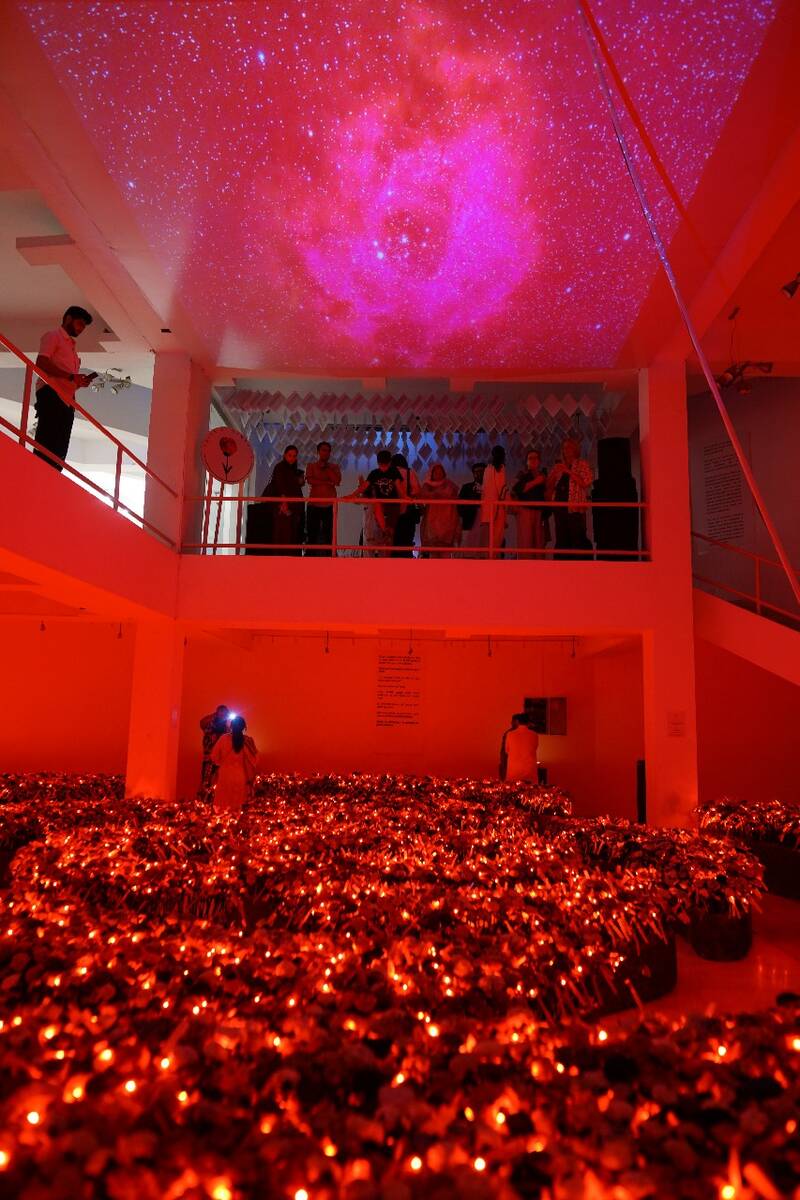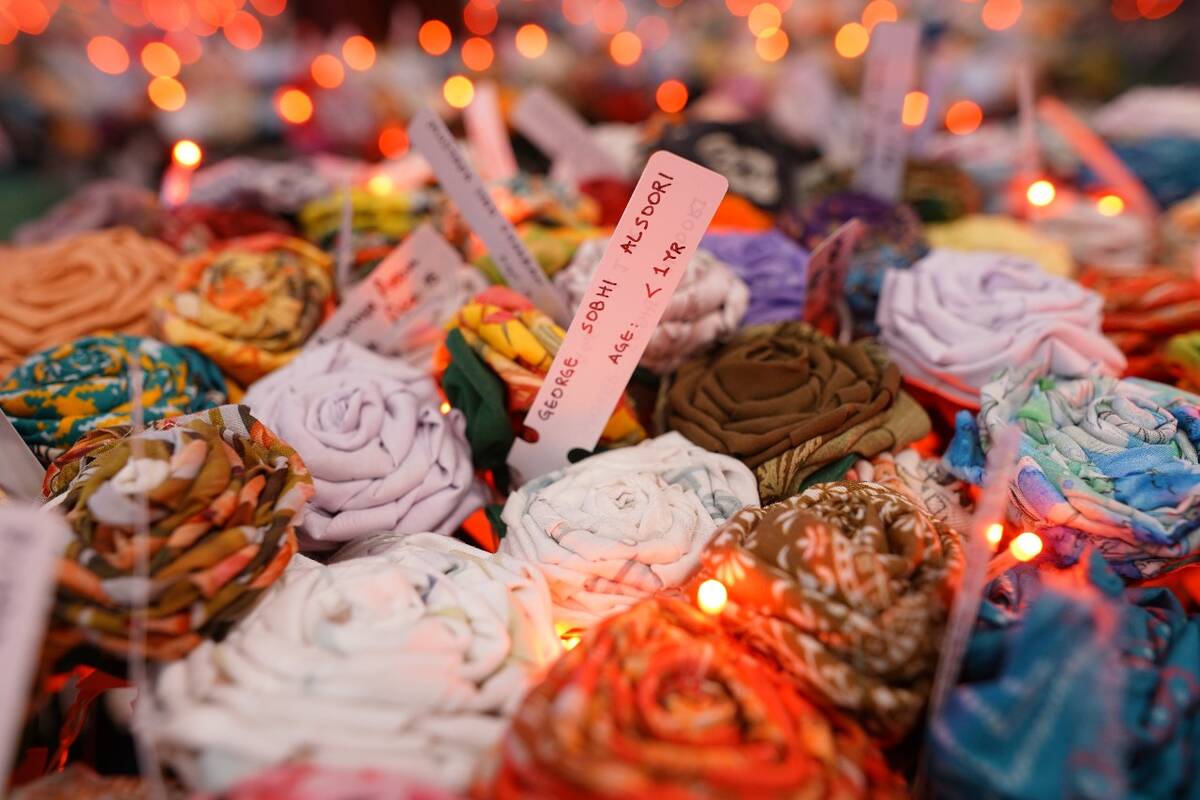LONDON: The enormity of the events that unfolded in New York on that late-summer Tuesday in 2001 can be measured by the fact that few of the millions who witnessed the horror unfolding live on news broadcasts around the world will ever forget where they were that day.
I was in the small port of Playa de San Juan on the Spanish island of Tenerife, making last-minute adjustments to the 7.5-meter boat in which I was about to set out in a rowing race across the Atlantic to the Caribbean island of Barbados.
It was a beautiful day, with the sunlight shimmering on the surface of the gently undulating ocean. Ignorant of the events unfolding at that very moment 5,000 kilometers away across the Atlantic, I was strolling along the picturesque waterfront, heading back to my rented apartment from the small fishing harbor where the race fleet had been assembled, when a shout from one of the other rowers cut into my thoughts.
He was standing on the other side of the road, in the doorway of a small restaurant that had become our unofficial race headquarters. He called me across and I went inside, blinking as my eyes adjusted to the sudden darkness. The bar was unusually busy for the time of day but no one was sitting at the tables. Instead they were standing, grouped in a semi-circle, staring up in near-silence at a TV suspended above the bar.
It took a few moments to make sense of what I was seeing. There on the screen were the Twin Towers of the World Trade Center, the establishing shot familiar to anyone who had ever seen a movie set in New York. Unfamiliar, though, was the sight of smoke billowing out of both towers. The image was difficult to comprehend. Could both buildings possibly have caught fire at the same time?
How we wrote it

Arab News’ multi-page coverage captured the devastation of 9/11, a tragedy that reshaped the world.
Then came the replay of the second strike, as United Airlines Flight 175 flew into the second, South Tower, slicing through the structure as though it were made of paper and disintegrating in a ball of orange flame, instantly destroying all hope that New York was in the grip of some kind of terrible but accidental calamity.
Over the next few hours and days in Playa de San Juan, there was much discussion about whether it would be appropriate for the race, which all of us recognized to be an essentially frivolous exercise, to go ahead in the shadow of the disaster.
Some of the rowers, including my teammate, argued for it to be scrapped. In the end, the race went ahead but my teammate’s heart was not in it, and after a week at sea he dropped out and boarded one of the two yachts shadowing the fleet as rescue boats.
Others, including me, subscribed to the “if we change our way of life the terrorists will have won” argument, although to be honest my motive for pressing on was much more personal and selfish.
I had trained insanely hard and had taken a leave of absence from my job as a journalist at The Times in London to take part in this race, in a boat I had spent the best part of a year building myself. To not go ahead was unthinkable.
Key Dates
-
1
CIA’s daily presidential briefing, headlined “Bin Laden determined to strike in US,” warns of “suspicious activity in this country consistent with preparations for hijackings.”
-
2
American Airlines Flight 11 hits North Tower at 8:46 a.m.; United Airlines Flight 175 hits South Tower at 9:03 a.m.; American Airlines Flight 77 hits Pentagon at 9:37 a.m.; United Airlines Flight 93 crashes near Stonycreek Township, Pennsylvania, at 10:03 a.m.

-
3
US Defense Secretary Donald Rumsfeld announces Operation Enduring Freedom, the imminent invasion of Afghanistan and the beginning of the “War on terror.”

-
4
Saudi Arabia cuts diplomatic ties with Afghanistan’s Taliban government.
-
5
FBI identifies all 19 hijackers: 15 Saudis, two Emiratis, one Lebanese and their leader, Mohammed Atta, from Egypt.
-
6
America attacks Afghanistan to overthrow Taliban and dislodge Al-Qaeda.

-
7
Taliban insurgency begins in Afghanistan.
-
8
US-led coalition invades Iraq.

-
9
Bin Laden admits responsibility for attacks.
-
10
US Navy SEALs kill Bin Laden in his hideout in Abbottabad, Pakistan.

-
11
9/11 memorial completed at site of Twin Towers.
-
12
The US withdraws all remaining forces from Afghanistan, ending a 20-year war and effectively paving the way for the Taliban to re-establish control over the country.
In the end, most of us looked for moral guidance to the two Americans crewing the only US boat in the race, and they had no intention of backing out.
In the days after the attacks, the US government told its citizens abroad to keep a low profile, advice to which one of the oarsmen, a native New Yorker, responded by going nowhere without the Stars and Stripes wrapped proudly around his shoulders.
In the end, the race started as planned on Oct. 7, 2001. That same day, seemingly striking out in a blind rage, America attacked Afghanistan. The 9/11 attacks, Washington had concluded, were carried out by members of Al-Qaeda, a terror organization that was being sheltered by the Taliban, which had been in control of much of Afghanistan since 1996.
Alone at sea, my mind was filled with the horrors that had unfolded, from the sight of trapped occupants of the Twin Towers, unable to face the fury of the flames, jumping to their deaths, to thoughts of the dreadful last minutes of the passengers on United Airlines Flight 93, struggling desperately to overcome the hijackers before their aircraft was flown into the ground near Stonycreek Township in Pennsylvania.
Night after night, I lay flat out on the deck of the boat, exhausted after a day at the oars, gazing at the astonishing panoply of stars and wondering which of the aircraft I could see tracking west to east across the heavens was bearing America’s instruments of revenge.

A man stands in the rubble, and calls out asking if anyone needs help, after the collapse of the first of the twin towers of the World Trade Center Tower in lower Manhattan, New York on September 11, 2001. AFP
When atmospherics allowed, I tuned into the Voice of America on the shortwave radio, and listened as the US launched its “war on terror” and the world slipped steadily toward a disaster that ultimately would cost many more lives than the approximately 3,000 lost on 9/11.
Having ousted the Taliban government, the authority of which had been recognized by a number of countries, the US and its replacement Afghan Interim Administration found themselves facing a Taliban reborn as an insurgency.
America had embarked on what would become the longest war in its history. That “forever war,” as President Joe Biden called it, lasted 20 years, only ending on Aug. 30, 2021, with the withdrawal of all remaining US forces in a deal that put the Taliban back in power.
That entirely futile, 20-year circular excursion cost the lives of more than 7,300 US and allied troops and contractors, and 170,000 Afghan military, police, civilians and opposition fighters. More than 67,000 people in Pakistan also lost their lives.
As for Osama bin Laden, the man who masterminded the attacks, he narrowly escaped US ground troops in Afghanistan in December 2001, and remained at large for almost a decade before American special forces found and killed him at his hideout in Abbottabad, Pakistan, in May 2011.

Former US President George W. Bush, aboard Air Force One, speaks with New York Mayor Rudy Giuliani and Gov. George Pataki about the two planes that crashed into the World Trade Center and the one that hit the Pentagon. AFP
In the meantime, as another part of the “war on terror” announced by President George W. Bush in September 2001, a coalition of US-led forces invaded Iraq in March 2003, on the pretext that dictator Saddam Hussein possessed weapons of mass destruction.
He did not. But the fallout from 9/11 settled over Iraq and the wider region like a black cloud of ash, smothering its economy, costing thousands of additional lives and, arguably, unleashing Al-Qaeda-allied Daesh and its ruinous bid to establish an extremist “caliphate” across vast tracts of the Middle East.
It was only after my feet finally touched dry land again that I realized the full extent of how the events of 9/11 had altered the world and, crucially, the dynamic between West and East. To my surprise — not to say dismay — my only son had joined the UK’s Royal Marines, and in early 2003 he left for Kuwait prior to the invasion of Iraq.
That spring, I spent many weeks huddled once again around a TV set, keeping my phone close and hoping not to receive the news that would devastate so many families, West and East, that year and for many more to come.
Mercifully, my son survived. Not all of his companions did. After 9/11, nobody’s world would ever be quite the same again.
- Jonathan Gornall is a British journalist, formerly with The Times, who has lived and worked in the Middle East and is now based in the UK.


















































































